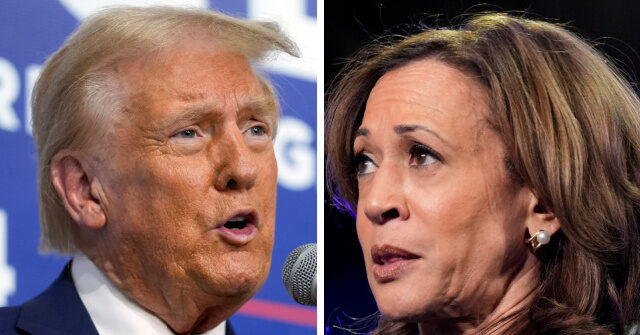A recent poll indicates that former President Donald Trump is gaining an edge over Vice President Kamala Harris among Arab-American voters as the 2024 election approaches. Conducted by Arab News and YouGov, the survey reveals a projected high turnout rate of 87 percent among Arab-Americans, highlighting their critical role in the upcoming election. The results show that 45 percent of respondents are likely to support the Republican nominee, while 43 percent favor Harris. The poll also highlights the diversity of voter sentiment, with some opting for Green Party candidate Jill Stein and a percentage remaining undecided.
The implications of the Israel-Hamas War significantly influence the voting preferences of Arab-American participants. The poll designates this conflict as a central issue among voters, with 29 percent identifying it as their top priority. In addition to international concerns, local issues such as the cost of living and the economy also remain pressing for this demographic. Interestingly, Trump is viewed as better positioned to resolve the Israel-Palestine conflict compared to Harris, with 39 percent of respondents believing he would do a better job, while 33 percent favor Harris in this regard. This perception may play a crucial role in shaping the voters’ choices in the election.
One potentially influential factor in this voter sentiment is Trump’s recent dialogue with Saudi-owned Al-Arabiya News. In this interview, he suggested that Israel should continue its military campaign against Hezbollah to weaken the Iran-aligned group. Such remarks resonate with a portion of Arab-Americans who may appreciate a strong stance against perceived threats in the region, which could be contributing to their increased support for Trump over Harris. This presents a contrast to Harris, who may not be viewed as assertive enough by some voters regarding these complex geopolitical issues.
Moreover, the majority of Arab-American voters believe their participation in the electoral process holds substantial weight. According to the survey, 80 percent of the respondents feel their votes play a significant role in determining the outcomes of elections. This sense of empowerment could lead to increased voter mobilization within this community, reflecting their growing political engagement and influence. As participation rates soar, candidates from both parties may need to address the specific needs and perspectives of Arab-American citizens to sway their votes.
The poll surveyed 500 Arab-Americans across the United States from September 26 to October 1, 2024, with a margin of error set at ±5.93 percent. This methodological approach underscores the importance of gauging the political sentiment within this group as it has traditionally been considered a Democratic stronghold. However, the shifting dynamics demonstrated by the poll results reveal a potential electoral battleground that could impact the overall voting landscape in 2024.
As the election date approaches, both candidates will need to take heed of Arab-American voters’ concerns, especially regarding significant issues such as the Israel-Hamas conflict, economic pressures, and the overall political climate. This evolving voter landscape, illustrated by the poll, showcases the potential for changing allegiances within minority groups and emphasizes the importance of targeted outreach by political campaigns. Engaging these voters effectively could be pivotal in determining the outcome of the presidential race, signaling a notable shift in traditional voting patterns among Arab-Americans.

